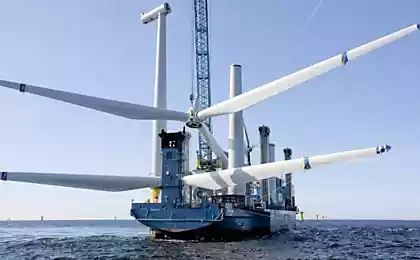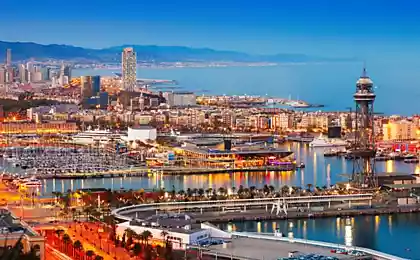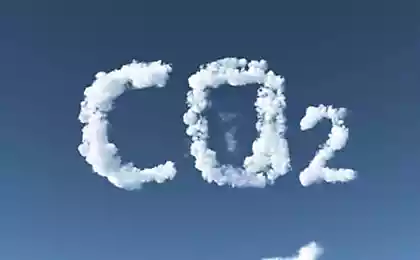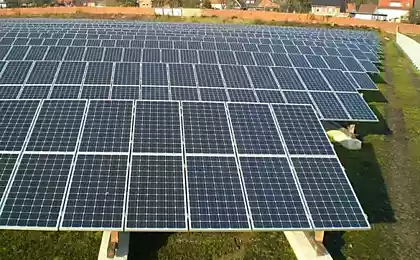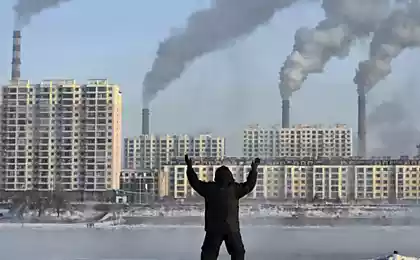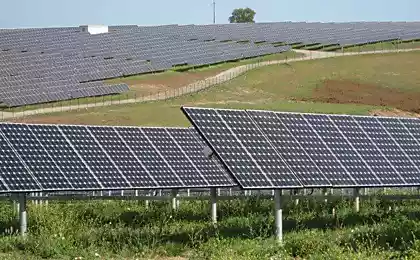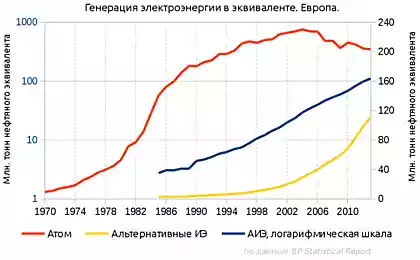485
Energy should be 70% decarbonised by 2050
The international energy Agency (IEA) and the International Agency for renewable energies (IRENA) has published the first joint report "prospects for the energy transition", which describes steps to achieve a global decarbonization.
The report was made at the request of the German government and its main task was to analyze the amount of investment in low-carbon technologies in the energy, transport, construction and industry necessary to achieve the goals of the Paris climate agreement — containing the growth of temperature within 2° C.
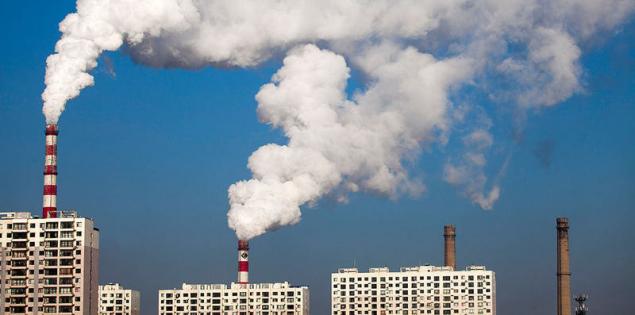
The main idea of the report is as follows: "the Goal of the Paris agreement technically feasible, but would require significant legislative reform, aggressive carbon pricing and additional technical innovations. About 70% of the world's energy needs be in 2050 low-carbon".
If the Nations of the world are going to implement the decision of the Paris agreement, they will have 35 years to cut emissions by 85%, or a yearly average of 2.6% (about 0.6 GT in absolute terms). One of the key provisions of the report is that "the global energy transition (or decarbonization) needs to be accelerated in the next 35 years to prevent the temperature rising more than 2° C".
It is not surprising, therefore, that measures to save electricity and increase use of renewable energy should become the main driving force of emission reductions. By the year 2030 due to these measures, the emissions should be reduced by 14 GT. By 2030 this figure is expected to increase to 25.5 GT. Then, because of fossil fuel combustion will be allocated to 22 GT CO2 per year.
But these efforts must continue after 2030, and this requires investment and legislative support today. Especially, the report underlines the role of investment, which we are seeing today the transition to clean technology renewable energy that is able to recoup all of the costs.
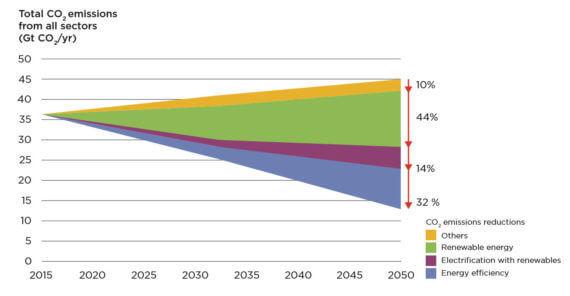
"We are in a favourable position to transform the global energy system, but the success will depend on immediate action, as delay will increase the cost of decarbonization", — the report says.
Other objectives that must be achieved by 2050 for "a profound transformation of production and consumption of energy":
P. S. And remember, only by changing their consumption — together we change the world! ©
Source: hightech.fm/2017/03/23/iea-irena-report
The report was made at the request of the German government and its main task was to analyze the amount of investment in low-carbon technologies in the energy, transport, construction and industry necessary to achieve the goals of the Paris climate agreement — containing the growth of temperature within 2° C.

The main idea of the report is as follows: "the Goal of the Paris agreement technically feasible, but would require significant legislative reform, aggressive carbon pricing and additional technical innovations. About 70% of the world's energy needs be in 2050 low-carbon".
If the Nations of the world are going to implement the decision of the Paris agreement, they will have 35 years to cut emissions by 85%, or a yearly average of 2.6% (about 0.6 GT in absolute terms). One of the key provisions of the report is that "the global energy transition (or decarbonization) needs to be accelerated in the next 35 years to prevent the temperature rising more than 2° C".
It is not surprising, therefore, that measures to save electricity and increase use of renewable energy should become the main driving force of emission reductions. By the year 2030 due to these measures, the emissions should be reduced by 14 GT. By 2030 this figure is expected to increase to 25.5 GT. Then, because of fossil fuel combustion will be allocated to 22 GT CO2 per year.
But these efforts must continue after 2030, and this requires investment and legislative support today. Especially, the report underlines the role of investment, which we are seeing today the transition to clean technology renewable energy that is able to recoup all of the costs.

"We are in a favourable position to transform the global energy system, but the success will depend on immediate action, as delay will increase the cost of decarbonization", — the report says.
Other objectives that must be achieved by 2050 for "a profound transformation of production and consumption of energy":
- Electricity must be low carbon by up to 95% (today only a third).
- 7 out of 10 new cars should be electric (today — 1 out of 100).
- The carbon intensity of the industrial sector should be reduced by 80% compared to current levels.
- Fossil fuels (particularly natural gas) should be not more than 40% of the demand, less than half now.
- In average up to 2050 every year will need $3.5 trillion of energy investment (two times more than they put in now).
P. S. And remember, only by changing their consumption — together we change the world! ©
Source: hightech.fm/2017/03/23/iea-irena-report
Drink with turmeric and lemon for skin glow from the inside out
German scientists have created the world's largest "artificial sun"
